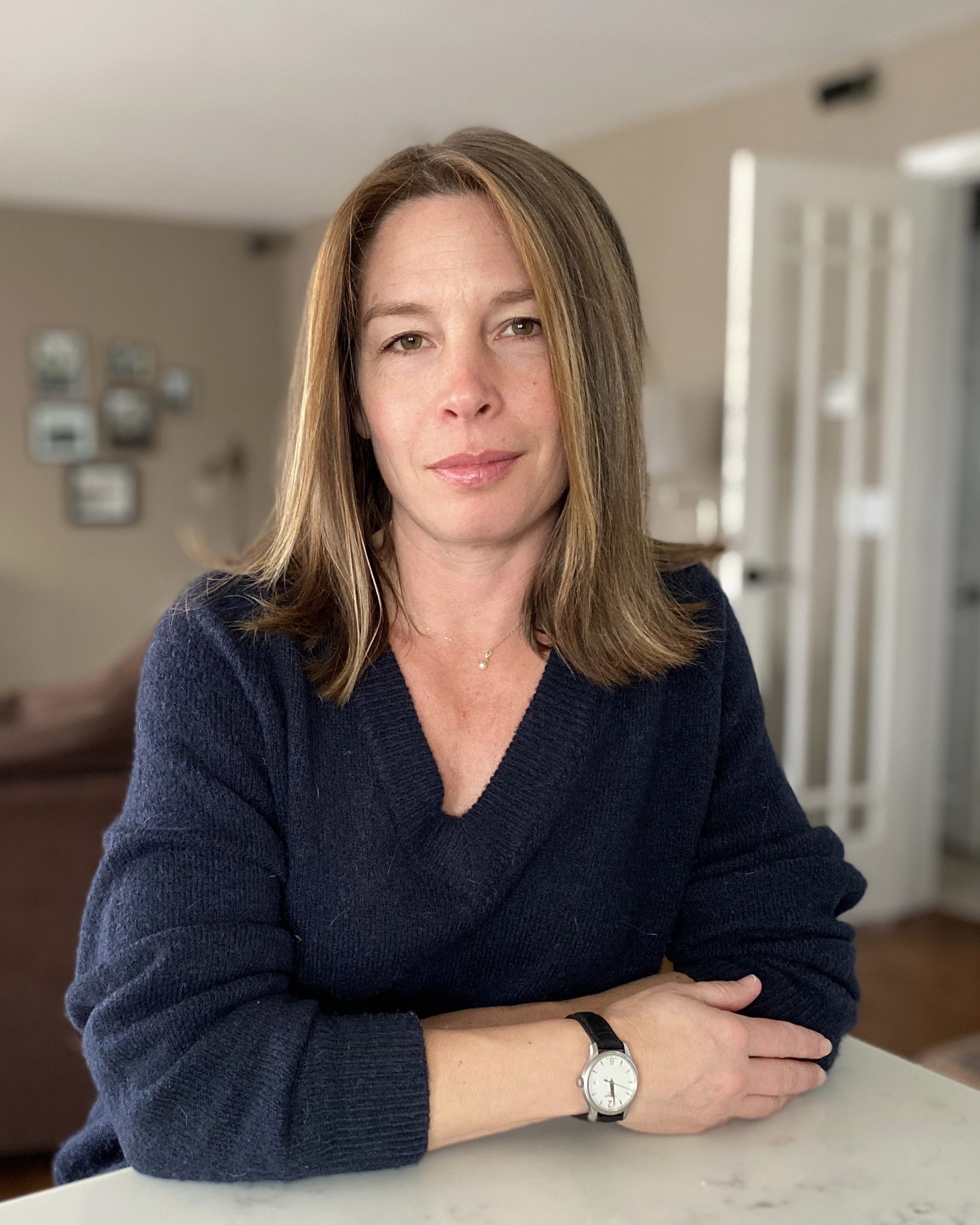I’ll admit to being uncomfortable with, but not judgmental of, polyamory. My discomfort could be a direct consequence of my having been socialized to believe in one-person romantic love. (One person at a time, that is.) I blame pre-teen readings of Danielle Steele. (“Blame” is the wrong word. I’m quite happy with my belief that some people do have one “true love.”)
Or maybe polyamory makes me uncomfortable because if I’m only supposed to talk to more than one person in a room, I’d rather drink in a closet by myself than have to deal with the time management.
Even in The Age of the Child–which is fiction!–I wouldn’t get more than ten-foot-pole close to polyamory when I wrote only a short-lived agreement between a husband and wife to try it. (In the story, birth control has been outlawed, and one of the protagonists, Katherine, refuses to get pregnant again. She stops having traditional intercourse with her husband, who very much enjoys traditional intercourse. Because Katherine decided unilaterally to kill that part of their relationship, her husband, Graham, decides unilaterally that he’ll compensate for that part with other, infertile, women. Katherine has no choice but to agree, at first–it is fair, after all.)
Katherine believing it was, in fact, fair went against my emotional instincts. Alas, I’m not Katherine, and to pretend, I had to remember that sex is just sex. No one owns anyone else, my Vulcan self insisted. Also, how can it be “love” if it’s too fragile to withstand being shared with, or by, more than one person?
As anyone uncomfortable with anything is, I’m also very curious about polyamory–why people do it, how it works, and why some people get so sincerely angry about other people engaging in it. So I asked a Facebook (and elsewhere internet) friend, whose polyamory had been unknown to me until he announced on FB that he was sad over a breakup (not with his wife), if I could ask him questions via email about his personal lifestyle. He said yes.
Thank you, Oliver!
ME: When and how did you first know you wanted to have an open relationship? (Was it before you were married or after?)
OLIVER: We were already married for about 7 years or so. We thought it would be exciting to play around with other couples. We didn’t think of it in terms of open marriage or open relationships at that point. We had sex with another couple, but it was just sex, and we felt like we needed more than just a physical connection. We couldn’t get more so we gave up, thinking, if that’s all there is, we are just good the way we are. Then, about a year ago or so, we thought we would give it another try, and we started looking, but then my wife came to me with a proposal of polyamory. After doing some research, we decided to give it a go.
What is it about an open marriage that appeals to you?
This question should be formulated specifically around polyamory, because not all types of open marriages or open relationships are the same and we are only interested in polyamory.
Open marriages/relationships are an umbrella term for all sorts of non-monogamous activity, from swinging to friends with benefits to polyamory and even polygamy.
What appeals to me about polyamory is that I have the option to have other relationship(s) if I choose to. I am free to get involved or not with anyone I might have some feelings for, or who might have feelings for me. I don’t need to suppress any needs I may have, or cheat to have those needs fulfilled. I can also choose not to have any of that and be monogamous if I feel like it.
What misconception about polyamory bothers you the most? (Not which is the most popular, but which do you least like.)
There are three questions that people almost always ask (with certain assumptions) when they hear about our open marriage:
- Is there something wrong with your marriage? (Or why be married?)
- Did he make you do it?
- What about kids?
Honestly, I’m not sure which one bothers me the most, they all bother me equally, because:
- There’s nothing wrong with our marriage, and see my answer on “why married at all?” below
- I am not an abuser (in fact, polyamory was my wife’s idea)
- Seriously, what about kids? This one is probably the worst to me because I feel like people think that if we have other relationships, somehow our kids end up walking around hungry and barefoot, or get abused or molested or whatever picture people may have in mind, which is just too much to process to even think about. Such a loaded question.
How does your particular open marriage work? And are both of you free to have other relationships?
Our type of open marriage is called Polyamory. Polyamory is a literal Greek-Roman translation for “many-loves.” It is also called “ethical non-monogamy.” We are free to have other relationships and to take them as far as we feel like within our personal and ethical boundaries. We are free to fall in love, free to engage in any activities that any “normal” monogamous couple is. Specifically, in our case, we are free to do whatever we want for as long as our family needs are being met. That’s our boundary.
Were you and your wife equally interested in an open marriage or did one of you need some persuading?
I needed some persuading. She had done a bit of research before I even knew anything about polyamory. I was a skeptic at first and had all the same misconceptions as most people have at first, but after further research by myself and together with her, I agreed to it. It was a tough cookie to swallow, but if I were to refuse to accept it and had I thought of it from a typical monogamous perspective, my only choices in that case would have been to either force the monogamous view of the marriage (and suppress her needs), divorce (and lose her along with breaking up the whole family), or accept it (which made sense to me because I love her and my family). These three choices are always the same with anyone making decision about opening-up.
I’ve seen the term “anchor relationship.” In a polyamorous situation, what’s the point of having an anchor relationship? Doesn’t that elevate one love over another, or make assumptions about the longevity of that relationship vs. the others?
“Anchor relationship” is a relationship qualifier. It refers to the role people serve in a specific relationship, not to the structure or the hierarchy of the relationship.
Relationships come in many different forms. A person can find the spouse to be a security anchor, the neighborhood pastor to be the spiritual anchor, or the best friend to be the emotional support anchor.
I suppose the terms that you’re looking for are the primary relationship vs. secondary relationship(s). Some relationships naturally require more investment in terms of time and physical presence. In that sense, primary only means that this relationship gets more time and physical presence than secondary.
In our case, it is obvious that our relationship is our primary relationship. We live together, we work, we pay the bills together, we are responsible for the well-being of our kids. It is beneficial for our kids to have a solid roof over their heads and food on the table. All other relationships we may have are secondary.
For other people, primary relationship could mean the same, or they might not even have a primary relationship. They might be the “relationship anarchists.” Some other people might be the “single poly,” they might maintain several relationships of which none are primary, or they still might have one primary relationship and several secondary ones. It solely depends on each person, and on their level of emotional investment and comfort.
It is difficult to make assumptions about love levels and longevity based solely on the structure of the relationships. While primary relationships are generally expected to outlast the secondary ones, that may not necessarily always be the case. Each person’s situation is unique.
Finally, love can’t be quantified.
You either love someone, or you don’t. I don’t think you can love one person 20% while loving another person 45%. I have heard of this analogy before: You have one child and love that child 100%. After you have your second child, do you love each child 50% then? Do you love your spouse 50%, and each child gets 25%? Which love lasts the longest? The math doesn’t add up there, does it?
What are your feelings about monogamy?
I think monogamy is not as natural as most people think.
The word monogamy is exclusively a term that describes a relationship between people with regard to sex, romantic relationships, and marriage. The assumption is that there should be ONE, and only ONE, person that anyone should have sex with, be romantically involved with, or marry – FOR LIFE.
What if someone is bisexual? Are they supposed to suppress their natural needs to have romantic relationships or sex with their own sex while simultaneously being romantically involved and married ONLY to one person? (Or only one person of the opposite sex?)
These things are not new. These things have been around since the dawn of man.
Society begs to differ, though.
We are conditioned and indoctrinated from early childhood that we are supposed to be romantically involved or have sex with only one person (of the opposite sex). We only think it is innate to us to want that and need that because we were never given any other option.
Given the latest research on human sexuality, it has become quite clear in recent years that sexuality is more of a spectrum rather than an “either/or” choice. Today, people identify as binary, non-binary, genderfluid, queer, cis man, cis woman, gay, lesbian, and trans.
There is absolutely no valid reason any person should have to accept having one and only one romantic or sexual relationship.
Human sexuality is a bit more complex than just a simple basic need to have one mate forever. People also change over time. Their emotional makeup changes, and their sexual preference might change. There should be no reason anyone should feel “stuck” in one relationship while craving another just because the societal norms dictate that. Many people who were gay and lived back in the ’50s or ’60s can probably attest to the fact that they had to play that “straight” guy married to one woman just to be considered “normal” in terms of what’s expected and normal in society.
You posted recently on Facebook that you were sad over a breakup with a woman (not your wife). First, what word is typically used for the people you enter into relationships with who aren’t your anchor or your primary, and second, are you and your wife able to comfort each other when you’re sad over break-ups with other people? How does that work?
My wife absolutely comforted me and stood behind me 100% as I would have done for her. She is very well aware that if her relationship with her boyfriend would have failed, she would have needed the same in return.
Our “others” are our girlfriends, boyfriends, partners. There are usual names just as there are in regular, garden variety monogamous relationships.
Her boyfriend is my “metamour” (polyamory has its own terms). They are also sometimes called “other significant others.” I wouldn’t really get too hung up on the terminology; terms are made up as they become more mainstream. I’m sure at some point in history someone had to think of a term for “aunt.”
Why get married at all?
I think this is a question that is not specifically relevant to polyamory or us. There is a legal definition of marriage, and there are also social, personal, traditional views on marriage in general and they may vary across peoples and cultures.
There are some obvious legal reasons should anyone get married. Marriage comes with legal protection, it sets certain standards, the rights and responsibilities.
And there are also personal reasons, which could be love or tradition, even religious.
We were obviously married long before we decided to open up our marriage. We were all of the above. We have established our life, history, and everything that comes with it. I don’t see why would we need to change anything now. We still love and care for each other, and we have kids.
This is a subject for a whole other discussion, probably at a national level. Just up until recently, marriage was specifically defined as arrangement between one man and one woman, and now we have gay and lesbian marriages allowed. Traditional views kind of take the back seat.
Still, the overall expectation goes back to the monogamy question and the traditional view that there should be ONE, only ONE, person for everyone on the planet, no matter how some people really feel about that.
In my view, this idea of loving one person only (as regulated by law) till death do us part seems rather archaic. One only needs to look at divorce statistics to realize that there are more problems with it than we are willing to publicly admit. Monogamous people tend to become serial monogamists: they meet someone, fall in love, get married, divorce, and then they start all over again hoping one day they will finally meet that one person they will spend their whole life with after they’ve already spent half of their lives searching for that person and failing.
What would you like to add about polyamory (anything at all you’d like to address, whether it’s a common question you get or another misunderstanding that you want to clear up)?
Polyamory is about eating your cake and having it too. Poly people are self-aware of their needs and needs of others. They understand that there is no one person that can wear all the hats and fulfill their every single need for the rest of their lives. They accept that having a choice is better than not having a choice. It is not how everyone feels. It is not what everyone needs. However, there is always an alternative to it, and it’s called monogamy.

Kristen Tsetsi is the author of the post-Roe v. Wade novel The Age of the Child, called “scathing social commentary” and “a novel for right now.” She is also the author of the novels The Year of Dan Palace and Pretty Much True (studied in Dr. Owen W. Gilman, Jr.’s The Hell of War Comes Home: Imaginative Texts from the Conflicts in Afghanistan and Iraq). Kristen’s interview series at JaneFriedman.com offers behind-the-scenes insights into all things writing and publishing.



